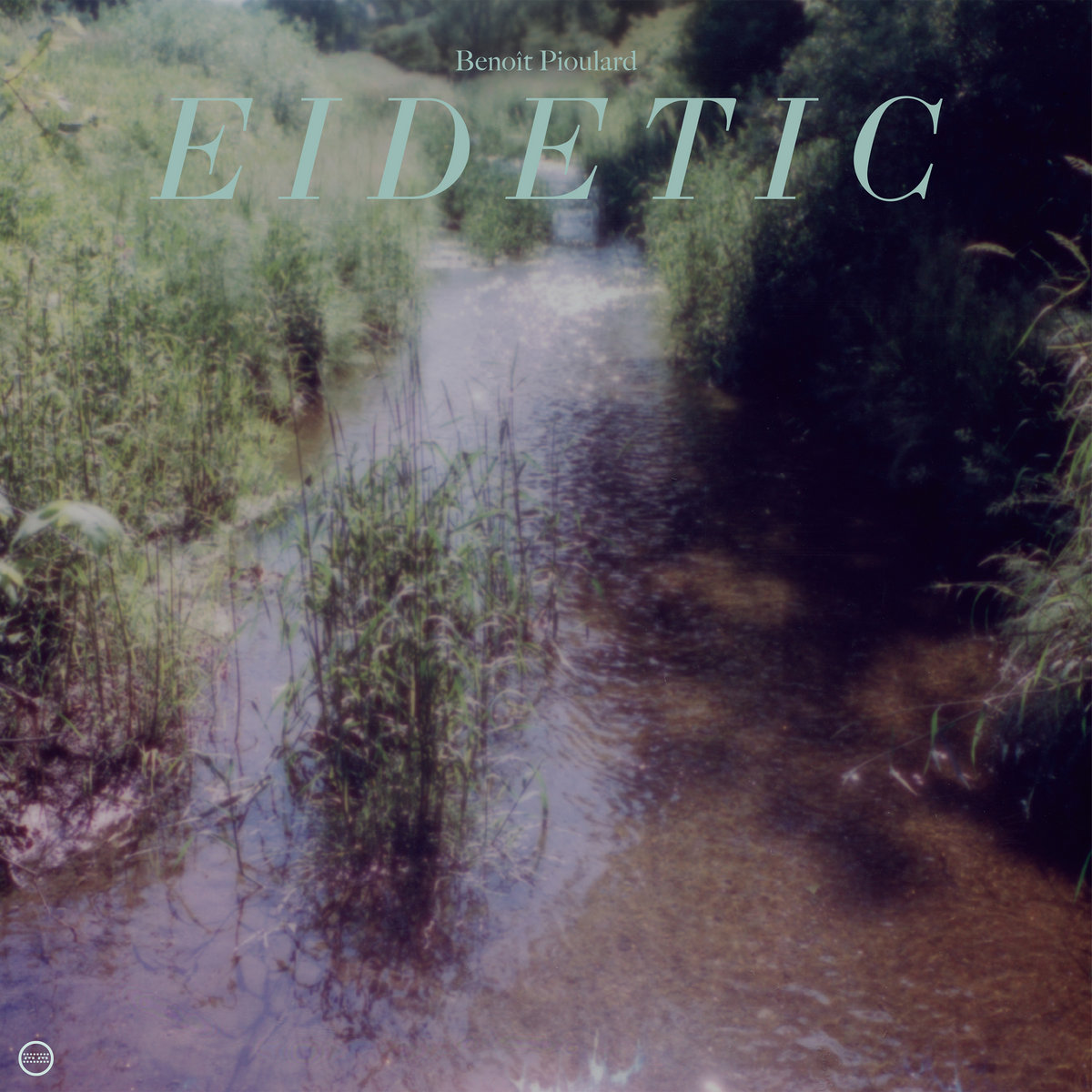 Back in 2019 Benoit Pioulard (Thomas Meluch) issued Sylva—an album full of abstract hyper-saturated lo-fi drone-pop sonic textures, which came with an 84 page collection of nature photographs in a linen book. Two pieces with vocals stood out: the brilliantly Bibioesque "Keep" and the less jangly but equally catchy "Meristem." These songs could not have been more appealing to me if Meluch had somehow used a machine to extract my personal dream essence as I slept. Naturally, I promptly forgot to write anything about Sylva, but Eidetic is a leap forward, with more vocals, so I'm glad I kept my powder dry.
Back in 2019 Benoit Pioulard (Thomas Meluch) issued Sylva—an album full of abstract hyper-saturated lo-fi drone-pop sonic textures, which came with an 84 page collection of nature photographs in a linen book. Two pieces with vocals stood out: the brilliantly Bibioesque "Keep" and the less jangly but equally catchy "Meristem." These songs could not have been more appealing to me if Meluch had somehow used a machine to extract my personal dream essence as I slept. Naturally, I promptly forgot to write anything about Sylva, but Eidetic is a leap forward, with more vocals, so I'm glad I kept my powder dry.
Distraction is embedded into modern life and that, rather than forgetfulness, is the real reason why I did not write about Sylva. I know this because the record left an impression and I've listened to it several times since 2019. It was stored in at least my short term, if not long term, memory. Eidetic memory, controlled primarily by the posterior parietal cortex of the parietal lobe of the brain, is a temporary form of short-term memory. Everyone has eidetic memory to a degree; it is the ability to see something soon after you look away. For most people, the image lasts from a fraction of a second to maybe a couple of seconds. Visual images in eidetic memory are either discarded or passed to short-term memory where they may be recalled for days, weeks, or months, then discarded or relayed to long-term memory. Of course since both Sylva and Eidetic are audio information this may not be literally pertinent but it is a way to begin to approach Eidetic and to paraphrase Basil Fawlty with his German guests "you (Thomas Meluch) started it."
No wonder then that the title track consists of a sweetly abrasive droning texture amid which voices mutter in the middle distant background for a brief minute and a half minute. Very nice sound, and it also qualifies as an indie joke, almost. As always with Benoit Pioulard recordings there is a good feeling throughout, it is gentle, cascading, twinkling music, quite affecting in a subtle way, with a good deal of blur and a far bit of strum. This is a given and I do like it, and also the fact that he is saying more using words. At times I wish the vocals were higher in the mix so I could catch what is being said, because these are good songs with clever meaning dotted in them. "Nameless" is an odd one, inspired by workers involved in the production of mercury mirrors who suffered neurological effects: driven mad while they looked at themselves. Other tunes I suspect are either deeply personal songs, deliberately obscured, and also that maybe the sound of the voice is as important as any lyric. There's a strong Songs of Green Pheasant vibe here, too, which is more than fine by me. On second, or is it third, thoughts, a lyric sheet would not go amiss.
"Where To" ends the album and it is an addition to anyone's funeral music file: ethereal, haunting, and all that jazz. The Japanese release of Eidetic has a bonus track titled in honor of Peggy Jo Tallas. The piece is also released as a stand alone single. Now that is a tale worth telling but maybe preferably by Dylan. Peggy Jo was a quiet suburban woman who disguised herself as a man in order to go on a bank robbing spree in the Dallas area. She evaded capture with ease because the cops were not looking for a woman, then kept her head down and cared for her invalid mother. Before getting caught she was dubbed Cowboy Bob by detectives. Peggy Jo never carried a gun and she died in a hail of bullets like Butch and Sundance in her favorite film. If that sounds much more interesting than Eidetic, well, to be fair it is more interesting than many records. Naturally, in Pioulard's hands it's an instrumental.

